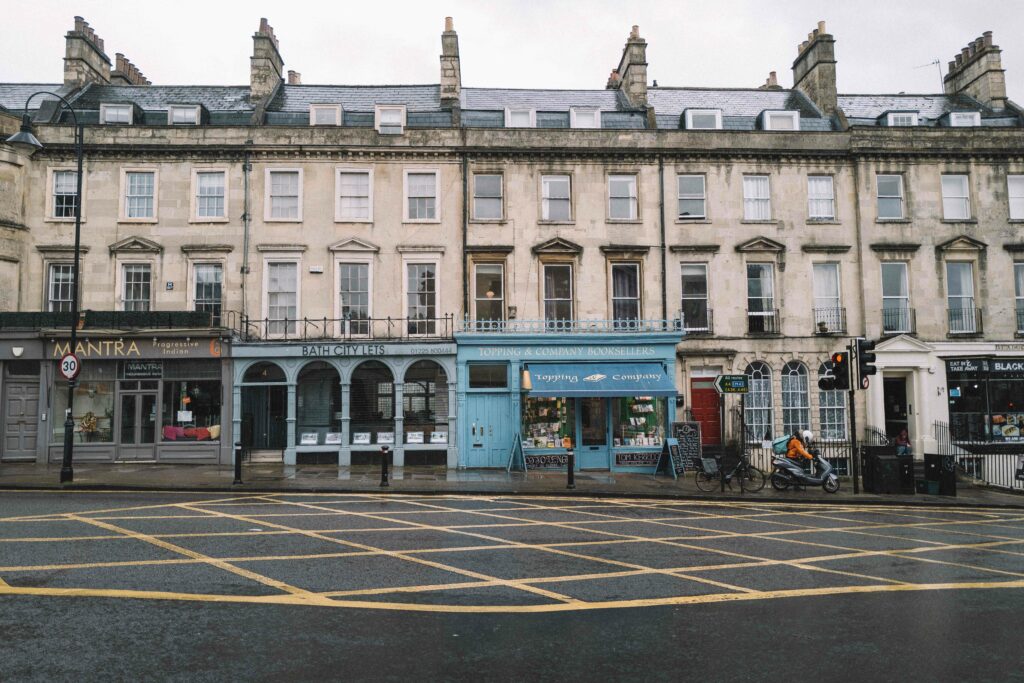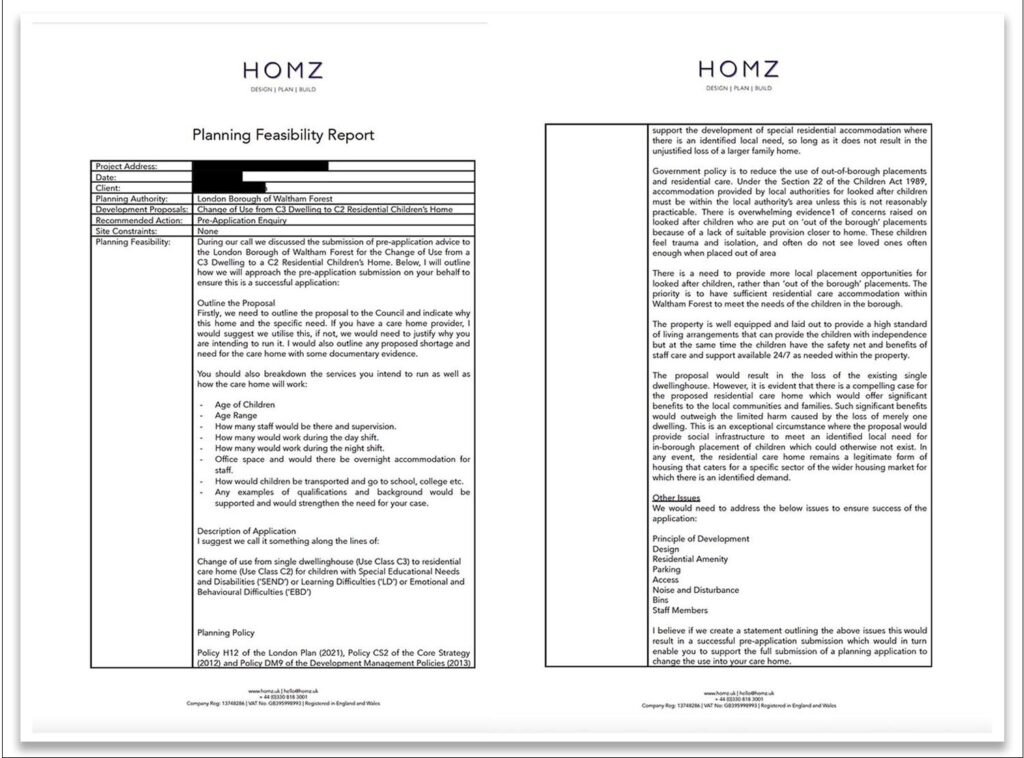
Our Town Planners and Architects offer success-proven planning and design services for all types of Change of Use applications with each local planning authority all around the UK.
.
At Homz, we have an excellent understanding of Use Class Conversion planning policies and extensive experience across a broad range of Change of Use Planning Applications and Licences all throughout the UK.
Whether you’re converting Commercial Building into Residential Units, HMO’s, Care Homes, Converting Houses into Multiple Flats, Converting Agricultural structures into Residential Use, or Adapting Houses into Holiday Lets; the process of changing the use application requires a solid understanding of the UK’s planning regulations and guidelines in accordance with you local planning authority. Homz has the right experts who can help you with your planning application.
Our Town Planners and Architects offer success-proven planning and design services for all types of Change of Use applications with each local planning authority all around the UK.
.
Change of Use applications are subject to specific planning regulations and guidelines in the UK. The government has established different use classes that define the permitted uses of properties. It is essential to comprehend these use classes and how they impact change of use applications.
From Class A (Shops) to Class F2 (Local community) each class has its own set of rules and requirements which are set by each local planning authority, which must be considered before embarking on a change of use project. Homz is your one-stop solution partner for obtaining all planning consents and necessary licenses for C3 to C4 Conversions, Care Home Conversions, Conversions to Flats, and HMO Conversions in the UK.
Depending on what you are planning to do, in addition to looking great, your project may also require some kind of planning permission. The good news is that at Homz we have expert planning consultants and architects working on a broad and diverse range of applications diligently and we are making sure that your project meets all of the necessary planning criteria to secure your planning permission and consent.
Our Town Planners are here to provide you with Pre-Planning Advice on whether you need planning permission or not. Feel free to Contact Us with your enquiries and our expert team will get in touch with a FREE No Obligation Chat regarding your project.
We’re ready to help you. Our expert is here, just send a message.
Every client would like to know if their application would be successful before spending their budget on planning the application. Our town planners will review your project, examine the relevant planning policies, and analyse the relevant planning history to provide you with Pre-Planning Advice. You will know if your project falls under permitted development rights or needs a planning application. You can easily book your call with one of our town planners on the same day! Following your call, your planner will conduct the Planning Appraisal Report which will include all the answers in only 2 working days.


Making a planning application might be risky, and it becomes riskier the less you’re prepared for it. Preparing a comprehensive application that includes relevant forms, supporting documents, and plans, ensuring compliance with local planning authority guidelines. Our dedicated Change of Use architects and town planners will provide you with drawings and supporting statements with correct technical information, which are prerequisites to getting permission.
While each Change of Use project presents unique challenges, with careful planning, research, and professional guidance, property owners can get the most profit from their projects. Our Chartered Town Planning Consultants at Homz have full knowledge of the ever-changing local planning authority policies that any project will be subject to. So, their help could be indispensable — especially if your project is in a designated area which carries restrictions such as a Conservation Area, Article 4 Direction, Listed Building or AONB. Get in touch with us today and we can help.


We have established partnerships with a variety of companies that can assist you with your planning process and provide unique services to support your application. Our partners offer a range of services before or after planning applications, including premises licenses, surveys, and assessments.


A material change of use occurs when the use of a building or land differs from its previous use class. In UK planning law, various uses are categorized into planning use classes under the Town and Country Planning (Use Classes) Order. For example, changing a property from a commercial business and service use to a dwelling house would typically require planning permission.
However, not all changes of use require a full planning application. Thanks to general permitted development order and rights, some changes of residential use can proceed without a formal application. These rights are set out under the General Permitted Development Order (GPDO), which allows certain alterations, such as converting a building within the same use class, without needing to obtain planning permission.

In cases where the change of use is not covered under permitted development, a change of use planning application is required. For example, if the proposed change involves a material change of use that alters the building’s existing primary function or the structure itself, the developer must seek full planning permission.
Certain changes of use, particularly those involving major structural changes or the subdivision of a single dwelling house into multiple occupation or separate dwelling houses, will always require permission. Similarly, converting a property into uses like a hot food takeaway or takeaways, general industrial class, or residential institutions such as residential schools or health centres can also necessitate permission.
For listed buildings, listed building consent may be required alongside the planning application, especially if the change of use of the listed building involves major renovations or structural alterations.

In some cases, a prior approval process may apply instead of a full planning application. Prior approval applications are typically used for changes that fall under permitted development rights, but where the local planning authority can remove permitted development rights but still needs to approve specific aspects, such as impacts on traffic, noise, or flooding risks. For instance, converting an office building into dwelling houses often requires prior approval from the local planning authority.

To confirm that a proposed change does not require planning permission, applicants can seek a lawful development certificate from their local authority. This certificate serves as official proof that the change is lawful, either because it falls under permitted development rights or does not constitute under development legislation a material change of use. Obtaining this certificate provides peace of mind to developers and property owners and ensures that future enforcement action is avoided.
The planning application process can take around 3 months from start to end with your local planning authority but in some cases, it takes about 6-8 months based on the complexity of the proposed project.
We think the planning applications do not need to take forever to submit! Our streamlined workflow empowers us to deliver swift and reliable service with confidence. If you want to learn more about our bespoke and innovative approach, then check out Our Process page and here we prepared a video about our unique process.
We’re working all over the UK with local planning consultants. With over 2000 projects submitted throughout the UK; Homz are a nationwide planning and design consultancy.
Our Change of Use Planners are here to provide you Pre-Planning Advice on whether you need a planning permission or not. We’ll check the planning system together with the recent planning use classes within your local authority to confirm your development rights within the same use class and whether you’d need any planning permission such as prior approval, lawful development certificate, full planning application or listed building consent.
Feel free to Contact Us with your enquiries and our expert team will get in touch with a FREE No Obligation Chat regarding your project.
Change of use projects in the UK can encompass a wide range of scenarios. Let’s explore some common types of projects that frequently require change of use permissions:
a. Commercial to Residential Conversion: Converting commercial spaces, such as offices, warehouses, or shops, into residential dwellings to address the growing demand for housing.
b. Residential to Commercial Conversion: Converting houses into HMO’s (House in multiple occupations), Care Homes, Conversion to Flats.
c. Agricultural to Commercial/Residential Conversion: Transforming agricultural buildings into commercial spaces or residential units, fostering economic growth in rural areas.
d. Office to Residential Conversion: Repurposing office spaces into multiple flats or shared accommodations like HMOs.
e. Industrial to Leisure Conversion: Converting disused industrial facilities into recreational or entertainment venues, revitalising communities and providing new leisure opportunities.

The local planning authority must consider the broader impact of a change of use on the local community and surrounding area. For example, changing a building’s use from a retail shop, which might principally serve the community by selling essential goods, into a financial or a financial and professional services, firm could have significant local implications. Planning authorities assess such developments for their contribution to the town centre area or residential zones, and whether the proposed development aligns with the community’s needs.

The UK’s planning system can be complex, with multiple factors influencing whether planning permission is required. Applicants are encouraged to seek professional advice to navigate the planning control process effectively. Planning advice from experts can ensure that all relevant considerations are accounted for, including whether the project would involve physical works, proposed demolition, or result in newly formed units.
If an application is refused, applicants have the right to appeal the decision through appeal process with the Planning Inspectorate. In some instances, local authorities may issue an enforcement notice if changes are made without the required permissions.

Certain types of development, such as forestry development, state-funded schools, or outdoor swimming pools, may have their own specific planning requirements. Additionally, developments in secure local authority accommodation or residential institutions may need special consideration prior approval, especially if the proposed development significantly alters the use or function of the building.
Removing permitted development rights in certain cases allows local authorities to retain control over critical changes. For example, a local planning authority may do so to protect the character of a conservation area or prevent inappropriate changes within a listed building.

The Town and Country Planning (Use Classes) Order 1987 (as amended) puts uses of land and buildings into various categories known as ‘Use Classes’. It is generally the case that you will need Planning Permission to change from one use class to another, although there are many exceptions which are referred to as ‘Permitted Changes’, allowing some changes between uses. Commercial to residential conversion permitted development rules are quite intricate so it’s always good to have a professional’s opinion before you proceed with the application. We offer a Pre-Planning Advice service at Homz, where our Town Planners provide informed planning advice on your project.
The general principle is that a use can change if it does not have the potential for greater detriment to the public, or to neighbouring uses. For example, A3, (restaurant) uses can change to A1, (shop) use without the need for planning permission. However, if you are proposing to change the use of property or land, you should always seek advice from a planning consultant or your Council to confirm whether planning permission is required or not. In any event, you may wish to have documentary evidence of the change and you can achieve this via a ‘Certificate of Lawfulness’, which provide assurance that the new use will be free from the threat of planning enforcement.
Before you negotiate a lease or buy a property, it may be advisable to consider whether you need to obtain planning permission for your intended use and, if so, your chances of getting planning approval for it.

Use Class B – Business that serves people
B1 – Business (Offices and Research and Development)
B2 – General Industrial
Use Class C – Locations where people sleep
C1 – Hotels
C2 – Residential Institutions (care homes, hospitals, nursing homes, boarding schools, residential colleges and training centres)
C2A – Secure residential institutions
C3 – Dwellinghouse
C4 – HMOs
Use Class E – Commercial, Business and Service
Various uses from shops, offices, restaurants, light industrial, and much more
Use Class F1 – Learning and non-residential institutions
Schools, galleries, museums and more
Use Class F2 – Local community uses
Local Community uses
Class Q – Barns and Agricultural buildings
Sui Generis
If it isn’t in one of the use classes above, then it is under Sui Generis.

Understanding the UK’s change of use planning application process is essential for developers, property owners, and businesses looking to repurpose land or buildings. Whether you need a lawful development certificate, full planning permission, or are proceeding under permitted development rights, obtaining the right permissions is crucial to ensure compliance with town and country planning laws. Given the intricate nature of the whole planning permissions system, seeking Professional Advice is often advisable, particularly for more complex or contentious projects. Contact our expert Change of Use Town Planners and Architects to get the best possible roadmap for your project.

The client instructed Homz to provide Planning Consultancy on their property for a Change of Use from C3 (Dwellinghouse) to C2 (Care Home) in London Borough of Waltham Forest. Initially one of our Senior Town Planner has conducted a research within the National Planning Policy Framework (NPPF) to understand the local planning authority policies, property planning background, and as to whether the local planning authority is applying any constraints on previous use classes the property.
Care Home Policies
Government policy is to reduce the use of out-of-borough placements and residential care. Under the Section 22 of the Children Act 1989, accommodation provided by local authorities for looked after children must be within the local authority’s area unless this is not reasonably practicable. This proposed change of use from a dwelling house to a Care Home conversion requires planning consent. While planning approval will be required, we do believe that the site location should benefit from a reasonable – strong likelihood of success in terms of securing the necessary planning consent from an Care Home C2 Conversion Planning Permission.

The property is well equipped and laid out to provide a high standard of living arrangements that can provide the children with independence but at the same time, the children have the safety net and benefits of staff care and support available 24/7 as needed within the property.
After the planning appraisal, our Architects and Town Planners prepared the supporting documents Architectural Plans, and Planning Statements. Please see the plans of this project in our Portfolio. Our team has successfully submitted and managed the planning application with the council. Following the waiting period of the decision, Homz has scored another successful Approval for this planning application on behalf of our client.






